Industrial property could become next key FDI magnet
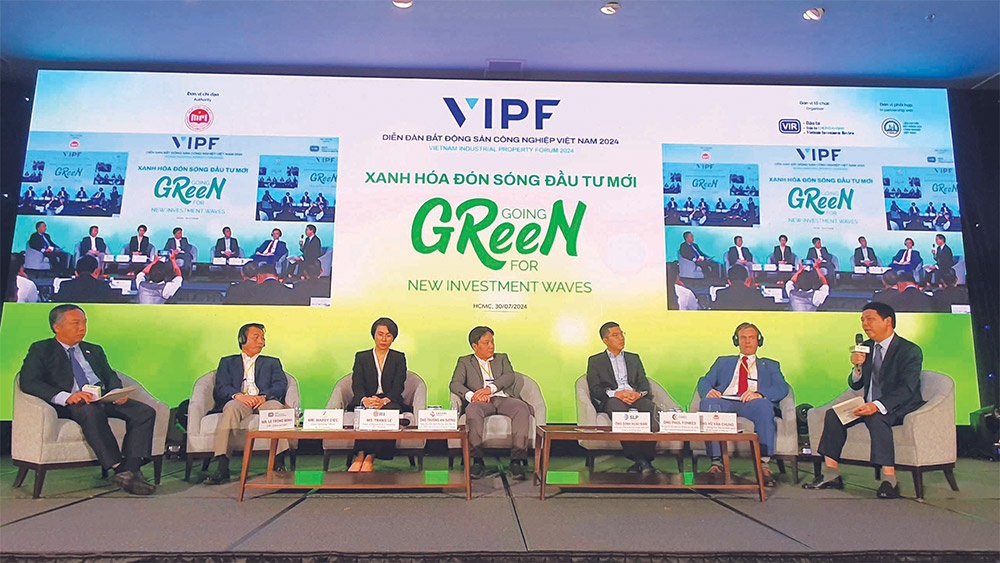 |
| Industrial property could become next key FDI magnet, Photo Le Toan |
Vu Van Chung, deputy general director of the Foreign Investment Agency under the Ministry of Planning and Investment (MPI), highlighted Vietnam’s competitive advantages in attracting investment, which help foreign investors set long-term goals.
“Vietnam’s economy maintains robust growth and participates in 16 free trade agreements, offering vast opportunities for investors,” Chung said.
He also pointed out that Vietnam’s large market of over 100 million people, combined with a substantial labour force where 57-59 per cent are of working age, provides a solid foundation for investment. “Many investors see Vietnam as an attractive market, presenting a significant opportunity for the industrial real estate sector to grow explosively,” Chung said.
He noted that the current trend is shifting from merely attracting foreign investment to fostering cooperative development. The government has tasked the MPI with reviewing existing preferential policies to focus on key industries and areas to draw in investors.
“Once these policies are approved, they will further attract foreign investment and promote the development of the industrial real estate market to better meet foreign investors’ needs,” he said.
Despite the global supply chain restructuring and complex economic conditions, Vietnam remains a standout destination for medium- and long-term foreign direct investment (FDI).
Data from the MPI shows continued improvement in Vietnam’s business environment. In 2023, registered FDI capital reached over $39.4 billion, an on-year 34.5 per cent increase, with disbursed capital hitting a record $23.2 billion. In the first seven months of this year alone, newly registered capital surpassed $18 billion, up 10.9 per cent on-year.
The rise in large-scale projects in sectors such as semiconductors, energy, component manufacturing, electronics, and high value-added products is particularly notable. Recently, Vietnam has emerged as a key player in the semiconductor supply chain, attracting interest from major corporations like Amkor, Nvidia, and Hana Micron.
Hardy Diec, COO of KCN Vietnam, highlighted that while FDI inflows into Vietnam have shown promising results, industrial real estate developers must not become complacent.
“Competition from neighbouring countries is increasing, and the demands and standards of foreign investors are continuously rising,” Diec said. “Continuously improving and offering innovative solutions, along with enhancing consulting services, are crucial to not only attracting FDI but also maintaining it sustainably.”
Truong An Duong, general manager of North Vietnam and Residential at Frasers Property Vietnam, observed that Vietnam’s foreign investment has predominantly focused on the manufacturing sector, which accounts for 60 to 70 per cent of investments. This trend drives demand for industrial real estate and associated amenities.
“Vietnam is also rapidly advancing in infrastructure investment, including roads, airports, and energy. The government’s and provinces’ active promotion of foreign investment also enhances competitiveness,” Duong said.
Duong noted that new-generation FDI in Vietnam is increasingly concentrated in high-tech industries, electronics, semiconductors, automobile manufacturing, and renewable energy. However, Vietnam faces stiff competition from countries like Thailand, Malaysia, the Philippines, and Indonesia, which have also developed policies to entice foreign investment in these industries.
“Vietnam will face intense competition as other countries also work to entice investment in these sectors,” Duong said.
Trang Le, head of Research and Consulting at JLL Vietnam, reflected on Vietnam’s industrial development over the past decade, noting significant progress.
“In 2023, FDI attraction in Vietnam increased by 34 per cent, far outpacing the global FDI growth rate of just 3 per cent. This highlights Vietnam as a bright spot amidst a global slowdown,” Trang said.
By the end of May 2024, Vietnam had established around 430 industrial parks (IPs) and export processing zones, covering approximately 89,200 hectares. Of these, around 300 IPs are operational, with the remainder under development. By the end of 2023, these zones had attracted over 11,200 foreign ventures and 10,600 domestic projects.
Meanwhile, Vietnam is making strides towards green foreign investment by implementing a national strategy on green growth and other policies. Major foreign investors like Lego, Heineken, and Pandora are increasingly focusing on green production in Vietnam, building carbon-neutral factories and using renewable energy.
As a result, eco-IPs are becoming a priority for foreign investors aiming for sustainable development, economic benefits, and corporate social responsibility, particularly in line with environmental, social, and governance criteria. To prepare for this influx of green capital, the MPI plans that by 2030, 40-50 per cent of localities will convert existing IPs into eco-parks, with 8-10 per cent planning new eco-IPs from the outset.
Michael Piro, co-CEO of Indochina Capital, the investor behind the Core5 project chain, noted that green capital flows are increasingly influencing Vietnam’s investment market.
“Significant capital is being allocated to green development. Vietnam may not only attract investment but also green capital,” Piro said. “There are billions of US dollars waiting to enter the Vietnamese market, and green real estate products, especially in the industrial segment, are poised for a boom,” he said.
Piro pointed out that green real estate commands a premium, with selling and rental prices 20 per cent higher than conventional products. “Green initiatives are creating added value for businesses’ products. Market participants should embrace green transformation – it is beneficial for businesses,” he added.
| Vu Van Chung, deputy general director Foreign Investment Agency Ministry of Planning and Investment
Vietnam has plenty of competitive advantages in attracting investment from other countries. And today, instead of previously attracting investment based on cheap labour, Vietnam now focuses on higher-quality investment thanks to the improved quality of labour. In terms of policy, the strategic breakthroughs of the government are being improved every day. Particularly, road and aviation infrastructure has been developing remarkably, and railways will be done in the future. Currently, the government is resolutely continuing to reform institutions and improve the investment and business environment. The government has established working groups to work directly with investors in new industries such as semiconductors, AI, and high technologies, as well as discuss and propose policies to support investors. In particular, the government has established a working group to realise the goal of training 50,000 semiconductor engineers by 2030. In 2023, foreign direct investment in the first seven months of the year increased by nearly 11 per cent on-year, and over 70 per cent of this was in the processing and manufacturing sector. This is a once-in-a-lifetime opportunity to draw in high-quality investment, and an opportunity for the industrial real estate market to develop explosively. To increase the attraction of the semiconductor industry in particular, the Ministry of Planning and Investment is building a mechanism of selective investment. Currently, we are building a decree on the establishment and management of an investment support fund, including incentive mechanisms for the semiconductor industry, and supporting local enterprises in Vietnam’s crucial industries. We are reviewing current incentive policies to focus on key industries and sectors. If these incentive policies are approved by the National Assembly, I believe that it will be very attractive for foreign investment mobilisation, as well as promote the development of the industrial real estate market. Vuong Thi Minh Hieu, deputy general director Department of Economic Zone Management, Ministry of Planning and Investment
Since 2014, with support from various investors, the Ministry of Planning and Investment (MPI) has piloted the eco-IP model as part of Vietnam’s National Green Growth Strategy. The MPI has been at the forefront of new models in response to the green growth strategy. Specifically, newly established IPs must meet international production standards, ensuring material and energy efficiency while reducing environmental emissions. Various decrees for the first time legally incorporated eco-IPs into Vietnamese legislation, and introduced new policy aspects for eco-IPs certification and recertification. Since then, the concept has been embraced by the investor community and expanded to key localities like Haiphong, Dong Nai, and Ho Chi Minh City. The policy aspects include enhanced responsibilities for infrastructure investors, such as connecting secondary businesses through a material management system, and increasing state oversight. The decree also requires investors to allocate land for social housing to support workers. The MPI has also been pioneering in establishing new eco-IPs from the outset. Specifically, the development of new models is undertaken from the planning and design stages, forecasting symbiotic networks, and developing strategies to attract investment into eco-IPs. However, there are some obstacles in the green transformation process concerning eco-IPs. Firstly, some industry-specific guidance documents, such as those on water and energy reuse, are still lacking. Consequently, industrial symbiosis and connections between businesses for implementing eco-IPs remain challenging. Secondly, the incentives for infrastructure investors involved in transitioning to green IPs are not yet aligned with the expectations and efforts of businesses. Additionally, Vietnam does not yet have legal documents at the legislative level to govern IPs and economic zones. In the short term, the MPI will coordinate with relevant ministries to expedite the issuance of guidance documents, accelerate the implementation of industrial symbiosis networks, thereby promoting circular economy practices and the transition to eco-IPs. In the long term, MPI is preparing a proposal for developing IPs and economic zones and raising their regulatory framework to a legislative level, including new models like those in Danang. Furthermore, we also propose strengthening the delegation of authority to local agencies to act as one-stop governance bodies to oversee, manage, and drive the development of IPs in line with government directions. Trang Le, head of Research and Consulting JLL Vietnam
In recent years, the rapid development of Vietnam’s real estate sector has been a source of pride, with foreign direct investment growth reaching 34 per cent in 2023, compared to the global foreign investment growth rate of only 3 per cent. Despite a global slowdown, Vietnam remains a standout. Key industries such as electronics and textiles have significant development potential, particularly if they transition to greener production methods. Vietnam should leverage its strengths, focusing on greener and more automated development. The semiconductor industry, which is a hot topic globally, presents challenges in terms of Vietnam’s capacity to absorb such investments. JLL commends Vietnam’s progress in green transition legal frameworks but stresses the need for more decisive actions. As other countries advance quickly, Vietnam must implement greener solutions and improve legal and procedural frameworks to maintain its competitive edge. Vietnam is in the beginning phase of piloting eco-industrial parks. However, there remain many challenges to putting the model into practice. In particular, there is a lack of financial support for investors, given that the green transition requires a huge investment in the initial phase. The private sector has spent on green transition. However, it is not an easy task to replicate this model. Another challenge is a shortage of comprehensive policies. Clearer and faster regulations are needed to help investors navigate changes and make prompt decisions. Otherwise, in about two years, they may have already directed their investments to other countries. Truong Gia Bao, vice chairman and general secretary, Vietnam Real Estate Association
The awards have demonstrated a strong commitment to sustainable development and environmental protection. Industrial real estate developers have implemented various advanced measures, including the use of renewable energy, environmentally friendly building designs, and optimising production processes to reduce emissions and resource consumption. The participating businesses have shown innovation and creativity in their business strategies. They not only focus on economic efficiency but also give deep consideration to environmental and social factors. Many businesses have invested in green tech, improved production processes, and carried out environmental protection projects, reflecting their long-term vision and responsibility to the community. We extend our heartfelt congratulations and sincere thanks to all the businesses and investors who participated in this awards programme, which reaffirms commitment to building a more sustainable future. Pham Phu Ngoc Trai, chairman, Global Integration and Business Consulting
I appreciate the organising board in providing voting criteria that highlighted the economic benefits of compliance with environmental requirements and tech innovation. I also appreciate the efforts of pioneering businesses in practicing sustainable development and greening the industry. Such businesses have contributed to laying a strong foundation for a more sustainable industrial development, and this is not only for us but also for the next generation. We are the first generation to feel the effects of climate change and also the last generation that can take action to change this transformation process. Once again, thank you to the pioneering businesses. Hopefully in the future voting rounds, the list of businesses participating in the voting will be longer with their more impressive contributions and achievements. Industrial developers and businesses should continue to ensure compliance with environmental regulations to move towards sustainable development and international integration. |
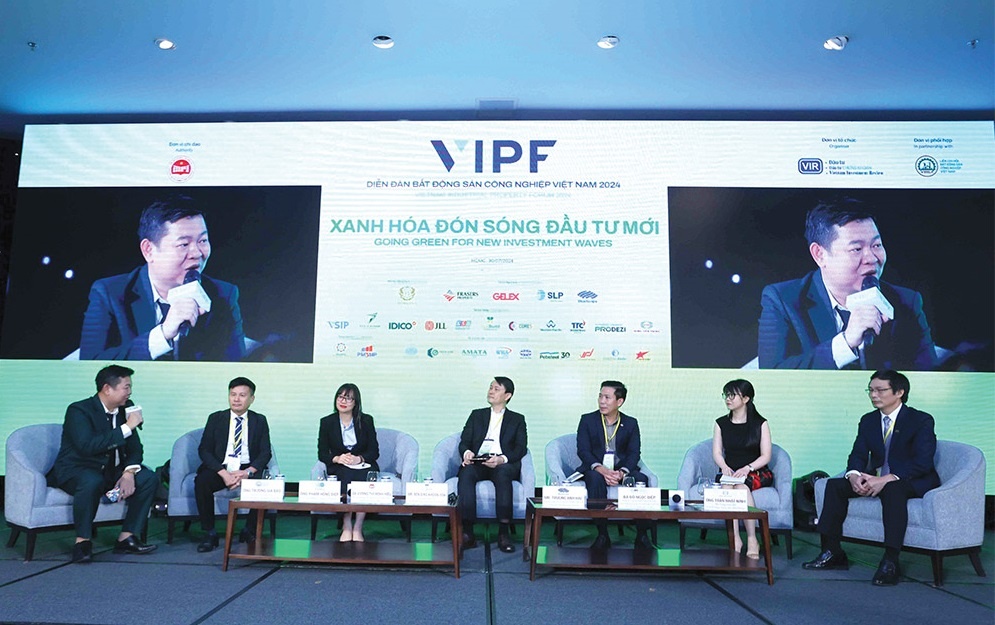 |
| Speakers discuss going green trends and development models for new investment waves |
| Hardy Diec, chief operating officer KCN Vietnam
At KCN Vietnam, we have identified investor satisfaction as the focal point of all our actions and plans. Furthermore, we continuously study customer needs to develop various new product types. Currently, ready-built factories (RBFs) and warehouses with high-finished specs still play a key role in attracting manufacturers and investors. However, the green factor will provide competitive edges for developers: the demands for sustainable facilities (with green building certifications, renewable energy, minimal to zero carbon, and waste emission) will increase, driven by increasing environmentally conscious tenants, investor preferences and government regulations. In the future, the demand for specialised facilities of industrial property types will continue to grow, such as bonded warehouse, cold storage, and many others. Other significant trends include technology integration, automated systems with Internet of Things-enabled monitoring, and data-driven analytics, and eco compound with value-added services including comprehensive facility management, logistics support, workforce training, and even amenities like housing, retail, and recreation. KCN Vietnam is diversifying and becoming more flexible in its product offerings. In addition to traditional ready-built products, we will continue developing new concepts to meet emerging investor demands, such as bonded warehouses, service compounds, and small-size RBFs. Furthermore, we recognise the importance of providing comprehensive, all-in-one consultancy services and adopting green strategies from the early stages of development. We endeavour to have LEED or other sustainable certifications for future projects, continue to implement solar roofing projects, and increase activities to support local communities. For example, last week we broke ground on phase two of an RBF and warehouse at DEEP C Industrial Zone in Haiphong, according to LEED standards. Standardising projects to meet green certification standards presents challenges in terms of resources and the readiness of skilled professionals, etc. However, we strongly believe the long-term environmental, economic, and welfare benefits it brings to our employees, customers, community, and the nation far outweigh those short-term difficulties. Paul Tonkes, industrial deputy director Indochina Kajima Development
The owner of Core5 Haiphong, we provide one of the best-in-class ready-built factories for rent in prime locations in the north, and pay attention to the impact of the commercial barriers on our tenants in IPs and their demand on factories. We see that developing green factories is a mandatory trend to attract foreign investors and simultaneously match Vietnam’s commitment to greenhouse gas emission mitigation. We also aim for greening and sustainable development, a commitment that is demonstrated in the implementation of Core5 projects. All Core5 factories are designed in a green and sustainable direction, and customers choose our factories because of their green nature. Developing green factories is also a way to enhance the competition capacity in the race to engage foreign direction investment capital. At Core5 in Haiphong, we also attract investors that specialise in the upstream semiconductor production chain. Without this stage, we cannot produce circuit boards. This indicates that we have a good connection if we have green workshop designs for customers. It also shows that Vietnam is not only a place to produce mass products, but also has the potential to become a hub for manufacturing upstream equipment and tools. However, to seize this opportunity, we need to focus on developing human resources and infrastructure. Pham Hong Diep, chairman, Shinec
At the end of April, Shinec, the investor of Nam Cau Kien Industrial Park (IP), published an environmental, social, and governance (ESG) report for its IP, making it the first IP in Vietnam to have such a report. I spent nine months implementing and completing the report. This process also required several revisions, retraining, and added investment of automatic monitoring equipment. This report must be assessed periodically every year, so while it is very complicated and costly, but it is an important piece of work for the process to building circular IPs. ESG standards are considered a tool to help assess the level of sustainable development practices of enterprises, describing aspects including environment, society and governance. Shinec has integrated ESG into its short-term and long-term business strategy. This report plays an important role in providing an overview of the effectiveness of specific indicators and goals set by the enterprise, thereby contributing to building a more sustainable environment. The criteria relating to ESG are similar to the demand of a series of investors. For businesses and investors exporting goods abroad with high green content, eco-IPs with ESG certification will make investors speed up their decision. Investors seek Nam Cau Kien IP to invest in the production of high-class products, which is in line with the state’s policies and the spirit of rules on prescribing the management of IPs and economic zones. We aim to develop 3,500ha of IPs and industrial cluster project land by 2030, integrating sustainable criteria according to ESG orientation, and will apply this to all IPs and clusters we are involved in. Truong Anh Hai, vice president for Environment, Health, Safety, and Community NS BlueScope Vietnam
The concept of sustainability is not new, as the discussion on this topic has been around for over a decade. Recently, there has been much focus on ESG. So, how can businesses integrate ESG requirements effectively into their systems? ESG factors are broad and comprehensive, so businesses may not have the resources or knowledge to immediately integrate all criteria. Experience from over 20 years of NS BlueScope’s ESG planning indicates that requirements should be incorporated from the outset when establishing a factory or IP. At NS BlueScope, sustainable development has been addressed from the initial requirements, starting with policies concerning employees. Two years ago, we decided to adopt a more structured approach, specifically an ESG criteria set for the steel industry. Since each industry has its own specific characteristics leading to different requirements, a universal set of criteria cannot be applied to all sectors. By early 2024, the company was certified with ResponsibleSteel™ site certification based on 12 criteria related to environmental, social, and governance aspects. Given that the criteria include 370 standards, businesses need to apply these criteria within their processes so that every employee, from operations to management, understands their contribution to sustainable development. Additionally, applying stringent ESG standards helps eliminate barriers between departments, requiring all departments, from production to human resources and management, to engage in the implementation and realisation of the criteria. Finally, it is crucial to ensure that employees understand that sustainable development is a worthwhile and correct pursuit, encouraging them to collaborate with the company to make sustainable development plans a reality. Recently, the EU introduced the Carbon Border Adjustment Mechanism to manage the carbon emissions of products exported to this market. In Vietnam, some of NS BlueScope’s customers have started to pay attention to issues such as environmental product declarations. Tran Nhat Ninh, deputy general director of Engineering, Tien Phong Plastic
In recent years, the concepts of green production and sustainable development have become strategic goals for businesses worldwide. We believe that long-term development requires creating sustainable, recyclable, and environmentally friendly products. This is not only a social responsibility but also a crucial factor for our future existence and growth. Our long-term strategy focuses on producing socially responsible products. We have heavily invested in renewable energy production technology. This reduces environmental impact and optimises production costs, providing economic benefits to the business. We aim to achieve carbon neutrality in our production, with the ultimate goal of reaching net-zero carbon emissions. This commitment not only meets the stringent requirements of IPs but also demonstrates Tien Phong Plastic’s dedication to sustainable development. Achieving this goal requires cooperation and effort from all stakeholders, including the government, businesses, and the community. Green production and sustainable development are not just trends but urgent tasks we must address. We are committed to continuous innovation and improvement in technology and production processes to minimise environmental impact. We believe that with relentless effort, we can build a green and sustainable future for future generations. The company understands that the journey towards sustainable development is long and challenging. However, with determination and strong commitment, we will achieve its goals and become a pioneer in green production in Vietnam. Ten years ago, when we started collaborating with partners from Australia and New Zealand, the pressure to adopt green practices became mandatory. These partners required us to comply with environmental, social, and governance standards for export. This pushed us to innovate and implement green production methods from the outset. We recognise that green production and sustainable environmental development are not solely our responsibility but require collaboration from multiple sides, especially businesses within an eco-IP. From the design and construction stages, we ensured green standards to create a nature-friendly and sustainable production environment. Collaboration among businesses within an IP is crucial. We cannot achieve our greening goals alone, we need support and cooperation from partners, other businesses, and IP investors. This collaboration not only helps us achieve environmental goals but also enhances business efficiency, creating mutual benefits for all parties. Truong An Duong, general manager of North Vietnam and Residential Frasers Property Vietnam
In the past few years, about 60-70 per cent of foreign direct investment (FDI) in Vietnam has been focused on manufacturing sectors, which has helped bolster the demand for IPs, as well as for accompanying utilities for manufacturing sectors. In addition, Vietnam has eyed a robust growth in infrastructure investment and development in recent years. Infrastructure investment includes not only roads and seaports, but also airports and energy networks. These factors help ramp up Vietnam’s appeal in investment and production practices on the global scale. Moving forward, the Vietnamese government, sectors, departments, and localities have done very well in foreign investment promotion. Vietnam is probably one of the countries with the largest number of foreign investment promotion delegations in the world. Along with that, free trade agreements, either under negotiation or are underway, are factors that help increase Vietnam’s competitiveness, especially in the context the global trade incurs broken chains driven by the world’s powers. These potentials Vietnam can exploit very well. However, in the global production chains, we will need to compete with many other countries. For example, in Southeast Asia, the country has to compete with Thailand, Malaysia, the Philippines, and Indonesia. Each country has different competitive strengths. In recent years, we have witnessed new-generation FDI waves and high-tech FDI moving into Vietnam in diverse fields of electronics, semiconductors, auto manufacturing, and renewable energy. The governments of many other regional countries also present policies to entice investment in these industries. For example, Thailand has strengths in car manufacturing, with accompanying supply chains and value chains that have been developing over the past 30-40 years; or in terms of semiconductor foundations, Malaysia has also done very well over the past 20-30 years. Ben Ding Khoon Yew, general director Soilbuild International (Vietnam)
Despite being a new player in the Vietnamese market, Soilbuild has been an integrated real estate and construction company for nearly 50 years in Singapore, and is also present in in Myanmar, the United Kingdom, and Australia with a portfolio of industrial, commercial and residential buildings. Numerous Soilbuild buildings have achieved various standards of Green Mark and LEED Platinum status in that time, and we have won the bidding for numerous key projects thanks to green factors. With the progression of technologies, the latest Green Mark Platinum building, the Tai Seng Exchange in Singapore has integrated technologies into the design, such as wind simulation to optimise ventilation, sensors, lift destination control system, and new generation building management system. Soilbuild obtained a green loan for the building. Continuing its sustainability journey, Soilbuild is pushing even higher limits with the next building in Tampines Singapore to obtain Green Mark Platinum SLE, which requires more than 60 per cent energy savings. The ultimate goal will be net-zero and positive energy buildings. Coming from Singapore, we have benefited from the adoption of technologies. Through the years, we have been pushing the boundary of our sustainability journey to not only reduce overall energy consumption and emissions but also secure a more sustainable future and resilient urban landscape for future generations. We are committed to promoting sustainable development in Vietnam, and our first project of the ready-built factory in Nghe An is being built to LEED certification standard. Soilbuild is an early adopter of sustainability. Our approach to integrating environmental, social, and governmental policies into its building design emphasises multiplying the green to ensure that sustainability is embedded at every stage of the asset’s life cycle. We appreciate Vietnam making significant strides in industrial sustainable development, focusing on various sectors such as energy, environment, and social development. We see that Vietnam is considering a carbon tax, which is also a good sign. Vietnam’s greening roadmap is very encouraging, which helps businesses develop responsibly. |
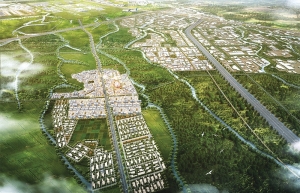 | Industrial parks strive to level up Industrial, service, and urban zones with smart technology application in operation and management of technical infrastructure will become hot development trends in the Vietnamese market, especially when it comes to some of the nation’s biggest foreign investors. |
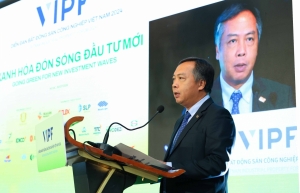 | VIPF 2024: Going green for new investment waves The Vietnam Industrial Property Forum (VIPF) 2024, organised by Vietnam Investment Review in coordination with the Vietnam Industrial Real Estate Association, is taking place in Ho Chi Minh City from July 30 with the theme “Going green for new investment waves”. |
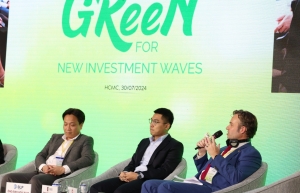 | SLP at the forefront of changes in Vietnam's industrial property market As Vietnam’s industrial property landscape is changing with more institutional players, SLP, a leading industrial and logistic infrastructure developer worldwide, is at the forefront of the changes. |
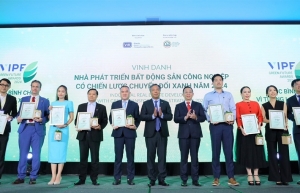 | Industrial developers honoured for green transformation strategies 17 industrial infrastructure developers were honored for their green transformation strategies in 2024 at the Vietnam Industrial Property Forum 2024, held on July 30 in Ho Chi Minh City. |
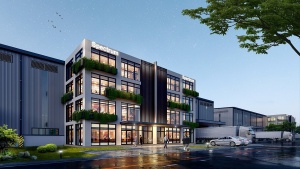 | Industrial property ready for welcoming high-tech FDI wave The industrial property sector, particularly Soilbuild, is enhancing its factories and services to draw in foreign direct investment (FDI) in high technologies |
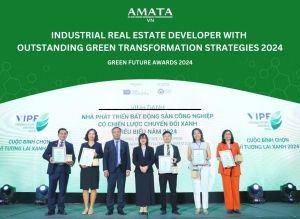 | Amata Vietnam scoops accolade for green transformation efforts Amata Vietnam was honoured for its outstanding green transformation strategies at the Vietnam Industrial Property Forum 2024 on July 30 in Ho Chi Minh City. |
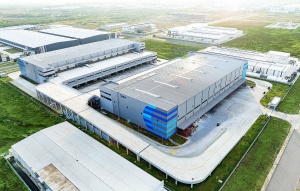 | Navigating challenges in Vietnam's industrial real estate market Vietnam's industrial real estate market boasts ample potential, but challenges remain to its development. |
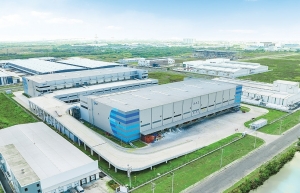 | Operational efficiency is ensured via SLP’s offerings SLP, a part of GLP, is poised to expand its impact on Vietnam’s industrial and logistics infrastructure with its robust investments in modern warehouses and factory facilities. Edwin Chee, chief operating officer of SLP Vietnam, discussed with VIR’s Thanh Van his insights into the emerging trends in the Vietnamese market and the company’s strategies to unlock potential. |
What the stars mean:
★ Poor ★ ★ Promising ★★★ Good ★★★★ Very good ★★★★★ Exceptional
Related Contents
Latest News
More News
- Sembcorp Development secures licence for VSIP in Khanh Hoa (December 31, 2025 | 18:54)
- Prodezi Long An advances towards integrated eco-centric industrial park model (December 26, 2025 | 11:16)
- Amata to develop $185 million Amata City Phu Tho (December 23, 2025 | 17:49)
- Work starts on Nhat Ban – Haiphong Industrial Zone Phase 2 (December 19, 2025 | 16:43)
- Becamex – Binh Phuoc drives sustainable industrial growth (November 28, 2025 | 15:22)
- South Korean investors seek clarity on IP lease extensions (November 24, 2025 | 17:48)
- CEO shares insights on Phu My 3 IP’s journey to green industrial growth (November 17, 2025 | 11:53)
- Business leaders give their views on ESG compliance in industrial parks (November 15, 2025 | 09:00)
- Industrial parks pivot to sustainable models amid rising ESG demands (November 14, 2025 | 11:00)
- Amata plans industrial park in Ho Chi Minh City (November 04, 2025 | 15:49)

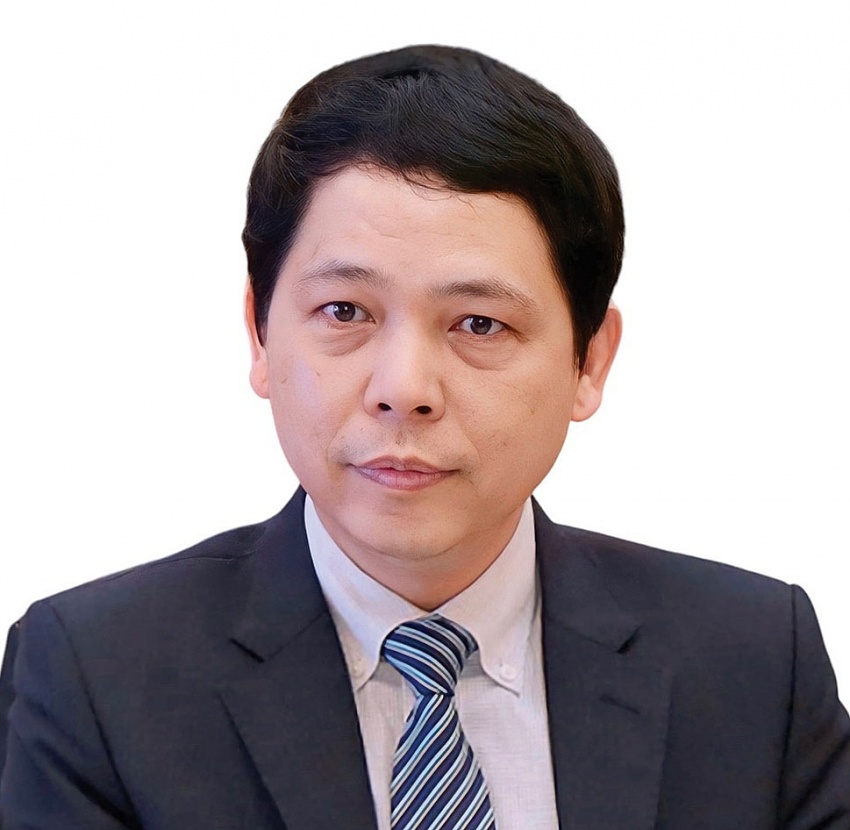

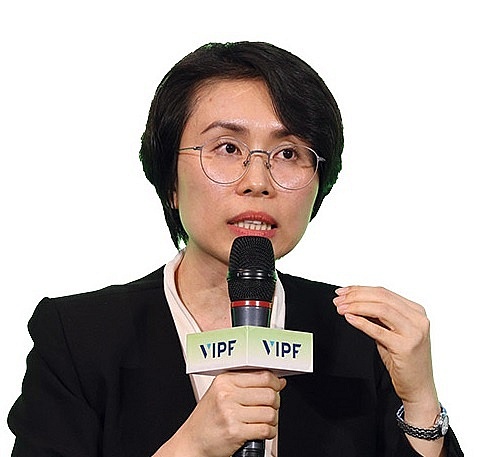

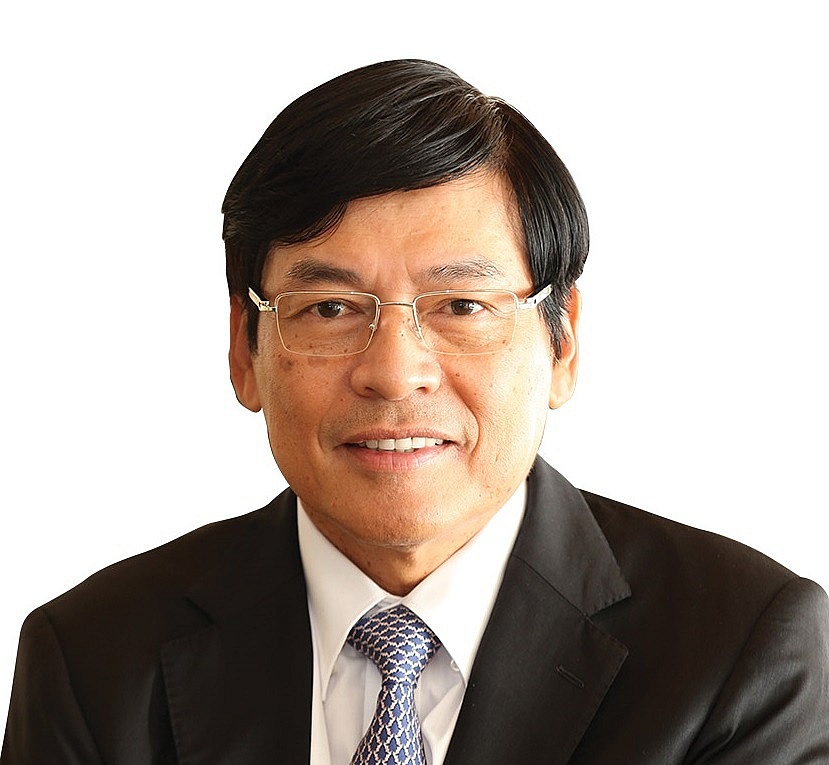
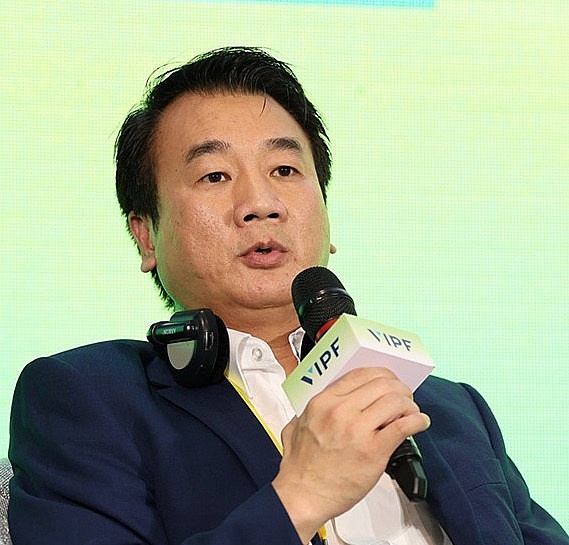
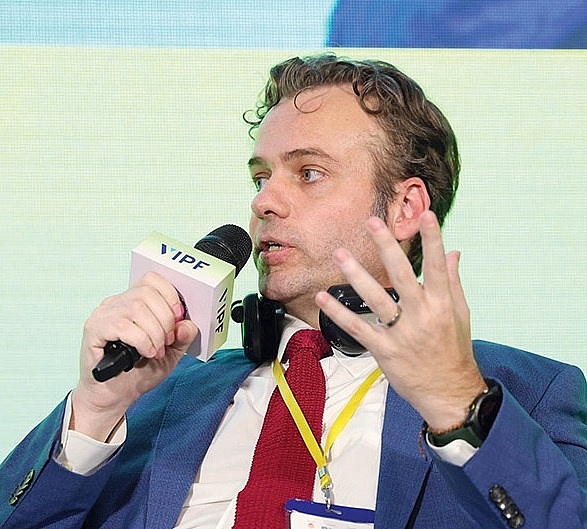
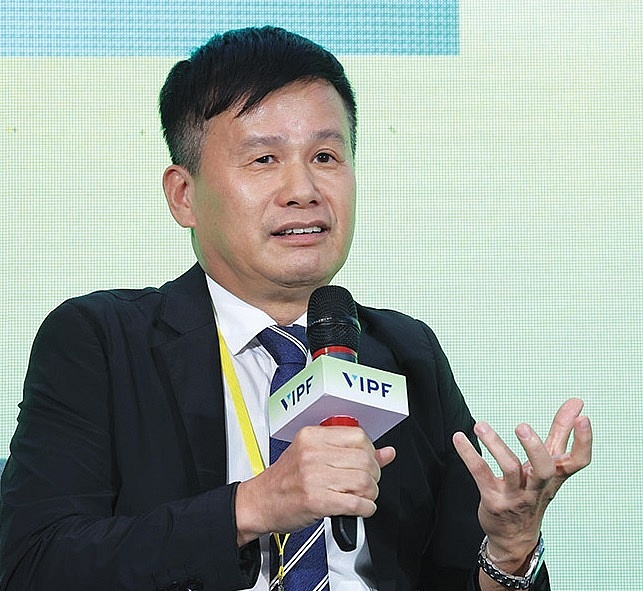
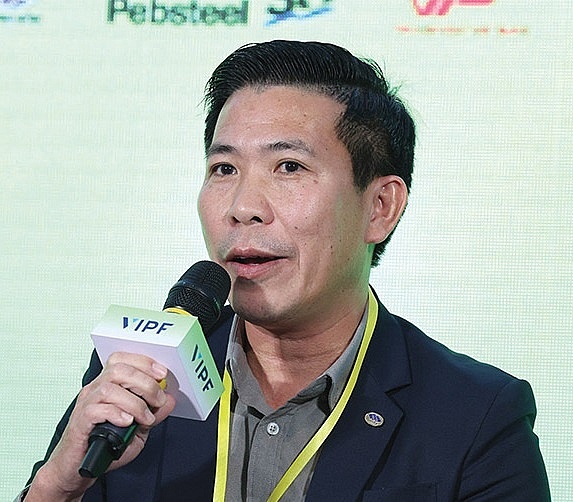
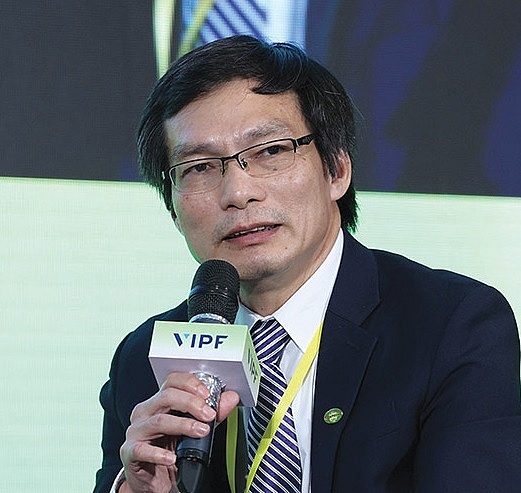
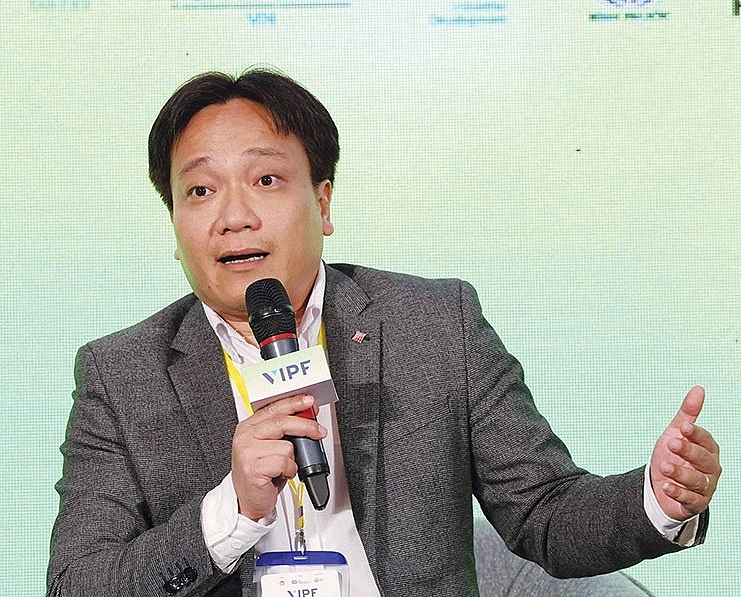
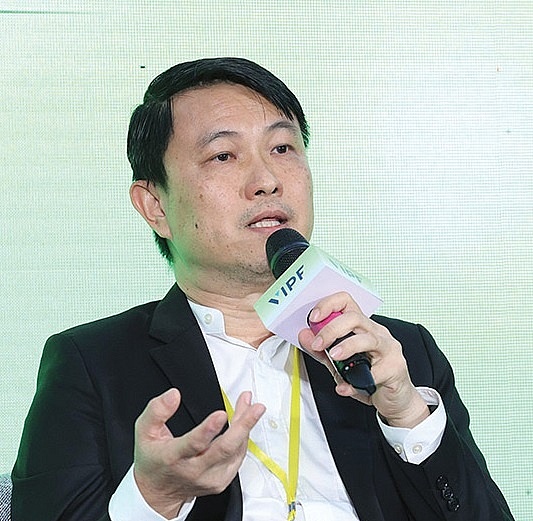
 Tag:
Tag:




















 Mobile Version
Mobile Version